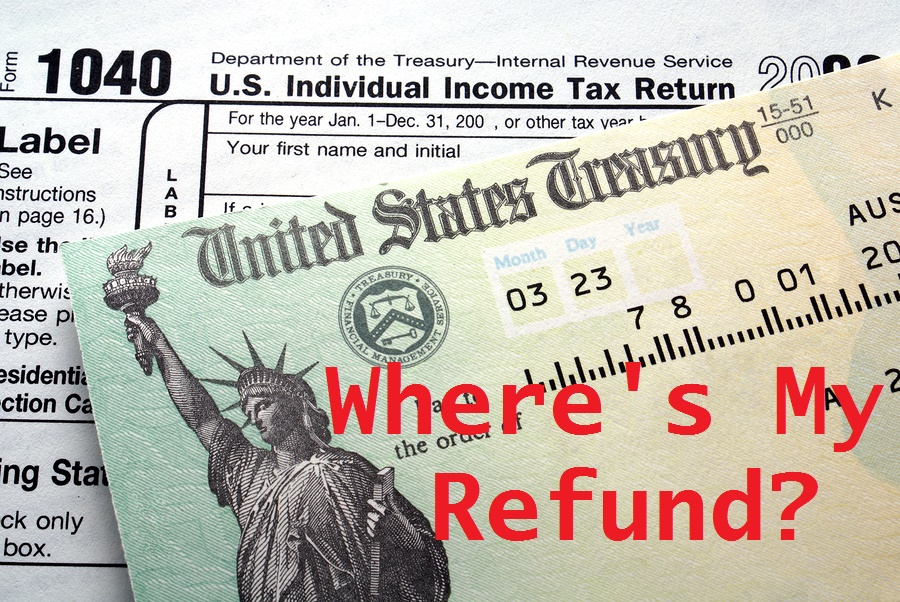
If you’re expecting a refund from the IRS, you really want to know when that money is coming in.
When you go to IRS.gov, click on the refunds tab on the top. This is where you can check the status of your refund online.
Once you file your US Income taxes, the most important thing to you is, “Where’s My Refund?” If you’re trying to find out about a current year tax return that was e-filed, the easiest way to find out about your refund is through the IRS “Where’s My Refund?” website. Before you go to the website you’ll need to have your Social Security Number, your filing status (Married filing jointly, Single, Head of Household, etc.), and the exact amount of your refund in order to gain access.
You need to wait at least 24 hours after the IRS receives your e-filed tax return. That means 24 hours after you get IRS confirmation that they’ve received it—not 24 hours after you filed. If you go to someplace like H&R Block and file your taxes on January 5th,—but the IRS hasn’t opened up their e-file acceptance, then your taxes are not really filed yet as far as the IRS is concerned. The tax company is just holding your return in a batch folder waiting for the IRS to open.
If you mail your tax return, don’t expect to see any results on “Where’s My Refund” until 4 weeks after you mail your paper return. Once again, the IRS isn’t “receiving” paper returns until they open the e-file, so even if you mail your return on January 1st, don’t expect to see your results online before an e-filed return.
The IRS has announced that they will not personally respond to calls about tax refunds until 21 days after your return has been received. To put that in plain English—
The IRS ain’t gonna talk to you about your refund until they’re good and ready to, no matter how early you filed your return.
I put that in big, bold, red letters because last year I received several calls from people who filed their taxes early with a store front tax company down the street from my office, then couldn’t find their refunds on the IRS website and that store front office didn’t return their calls. People were frantically trying to get information and couldn’t get answers.
So, if you go someplace to file your personal US income taxes and they tell you the IRS is receiving them before the acceptance date, they’re either lying or stupid. I know, that’s harsh but it’s true. They’re not actually filing the returns— they’re sending them to a “holding bin” until the IRS can actually receive the transmissions. It’s called stockpiling. It used to be illegal, but since the IRS keeps putting off the filing date they’ve made it okay to do now. The point is—your return isn’t really filed yet, and it won’t be received by the IRS until they officially open the filing season.
Now, if it’s after the official start date, and you’ve waited 24 hours after receiving notice that your return has been accepted by the IRS, you can go to the “Where’s My Refund?” page to check on the status of your return. Here’s the link: Where’s My Refund?
If the site doesn’t have an answer for you, wait another day and try again. The website is only updated once every 24 hours so checking on it more than once a day is a waste of time.
One final thing—all of the accounting firms have to deal with the IRS late e-file acceptance issue. Whether it’s a big box company like H&R Block, a small tax company like Roberg Tax Solutions, or a Big Four accounting firm like Deloitte; we all have to live with the same rules. The IRS will not accept anyone’s return any earlier than the official start date.
Generally, the e-file acceptance date begins on the day after the Martin Luther King, Jr. holiday, but has been as late as January 31. The start date for 2018 was not yet set at the time of this update.


